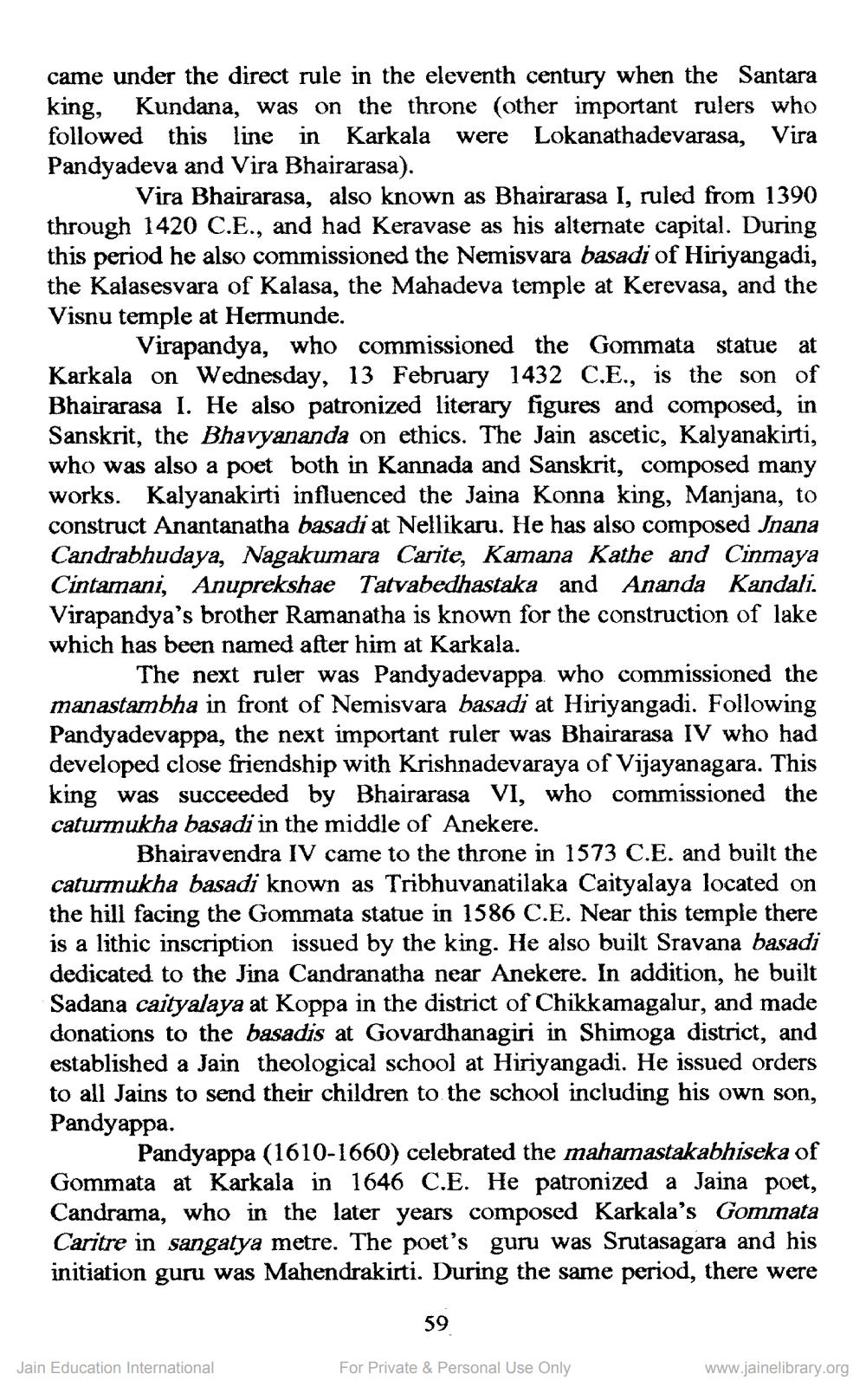________________
came under the direct rule in the eleventh century when the Santara king, Kundana, was on the throne (other important rulers who followed this line in Karkala were Lokanathadevarasa, Vira Pandyadeva and Vira Bhairarasa).
Vira Bhairarasa, also known as Bhairarasa I, ruled from 1390 through 1420 C.E., and had Keravase as his alternate capital. During this period he also commissioned the Nemisvara basadi of Hiriyangadi, the Kalasesvara of Kalasa, the Mahadeva temple at Kerevasa, and the Visnu temple at Hermunde.
Virapandya, who commissioned the Gommata statue at Karkala on Wednesday, 13 February 1432 C.E., is the son of Bhairarasa 1. He also patronized literary figures and composed, in Sanskrit, the Bhavyananda on ethics. The Jain ascetic, Kalyanakirti, who was also a poet both in Kannada and Sanskrit, composed many works. Kalyanakirti influenced the Jaina Konna king, Manjana, to construct Anantanatha basadi at Nellikaru. He has also composed Jnana Candrabhudaya, Nagakumara Carite, Kamana Kathe and Cinmaya Cintamani, Anuprekshae Tatvabedhastaka and Ananda Kandali. Virapandya's brother Ramanatha is known for the construction of lake which has been named after him at Karkala.
The next ruler was Pandyadevappa, who commissioned the manastambha in front of Nemisvara basadi at Hiriyangadi. Following Pandyadevappa, the next important ruler was Bhairarasa IV who had developed close friendship with Krishnadevaraya of Vijayanagara. This king was succeeded by Bhairarasa VI, who commissioned the caturmukha basadi in the middle of Anekere.
Bhairavendra IV came to the throne in 1573 C.E. and built the caturmukha basadi known as Tribhuvanatilaka Caityalaya located on the hill facing the Gommata statue in 1586 C.E. Near this temple there is a lithic inscription issued by the king. He also built Sravana basadi dedicated to the Jina Candranatha near Anekere. In addition, he built Sadana caityalaya at Koppa in the district of Chikkamagalur, and made donations to the basadis at Govardhanagiri in Shimoga district, and established a Jain theological school at Hiriyangadi. He issued orders to all Jains to send their children to the school including his own son, Pandyappa.
Pandyappa (1610-1660) celebrated the mahamastakabhiseka of Gommata at Karkala in 1646 C.E. He patronized a Jaina poet, Candrama, who in the later years composed Karkala's Gommata Caritre in sangatya metre. The poet's guru was Srutasagara and his initiation guru was Mahendrakirti. During the same period, there were
59
Jain Education International
For Private & Personal Use Only
www.jainelibrary.org




